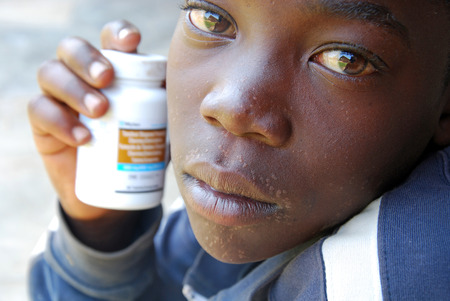[vc_row][vc_column][vc_text_separator title=”Services”][vc_column_text]
World Healthcare Associates (WHA), the healthcare division of TRDA, has as it’s major goal is to help localities develop system wide healthcare programs. A key component of this is the creation of training institutions and modalities to help each region become more medically self sufficient. WHA performs assessments of the needs of the present healthcare system and once an analysis is made, WHA experts will provide a clear path to follow to establish the proper infrastructure and clinical resources, train staff, and develop management protocols. Short and long-term solutions are provided to improve citizenry health status, healthcare type, and availability. A plan tailored to cultural, demographic and geographic needs, funding, transportation and other healthcare constraints is custom developed for each client and location.
Whether implementing healthcare models for rural development, healthcare organization of rural services, or technology for assessment, WHA provides on-going training for local care givers to help improve the effectiveness and efficiency of onsite services. A wide range of training from basic to advanced is offered. For example, basic preventive medicine practices can be taught to local lay personnel or to concerned groups, such as individuals, families, teachers, and others. Nutritional education and first aid can be taught to school children, teachers, and parents. Extensive medical educational courses, including hands-on skill workshops are available, as well as both initial and refresher classes for a variety of healthcare areas. The creation and implementation of schools or programs to develop an enduring educational institution at the location is also available. An example would be assistance in establishing a local or regional healthcare related program, which would include guidance on how to incorporate general health-status improvement, by strategic placement of training clinics, student/faculty outreach activities, and recruitment methods to obtain vested local personnel for the educational programs. These programs can be used as a foundation for the creation of a self perpetuating, high quality community to regional wide healthcare system. These systems can be tailored for use in a refugee camp, small clinic in a remote area, or larger facility in small towns. Guidance will be given for providing quality healthcare services in conjunction with the need for cost containment. Consultation is available for revenue cost balancing and other budgetary and granting issues.
Courses can be obtained via direct interaction with an onsite consultant, along with the option of teleconferencing. Teleconferencing can be achieved through Internet interactive real-time videos and chat lines, or through created classrooms equipped for video live broadcast. When practical wireless network services can also be utilized and expanded to reach a larger geographic area. Help with medical analysis for distant locations can be performed with the use of medical sensors, visualization devices and when necessary, robotic equipment. A network of consultants in varied fields to aid in answering questions and to demonstrate required skills can be assembled as needed. Program implementation, set up, and on-going consultation for distant-site medical intervention can be developed anywhere around the globe. The requesting personnel can be trained by our staff to use this technology and related equipment and facilities.[/vc_column_text][/vc_column][/vc_row][vc_row][vc_column][vc_text_separator title=”Approach”][vc_column_text] Worldwide, much of the healthcare industry relies on the private and corporate sector to provide the needs for its citizens. Using this model, community economic growth through the creation of clinics, hospitals, mobile healthcare units and the required infrastructure is an extra resulting benefit from the development of a well functioning healthcare system, which is a key of goal of WHA. This approach results in the creation of jobs and a general increase in educational levels of the populace. Assistance with accruing reduced cost medical supplies, pharmaceuticals and equipment further progresses this approach. Such a complex, but total approach involves many aspects of healthcare from training and recruitment to implementation of preventive, family, internal, pediatrics, behavioral, and psychiatric medicine.
Worldwide, much of the healthcare industry relies on the private and corporate sector to provide the needs for its citizens. Using this model, community economic growth through the creation of clinics, hospitals, mobile healthcare units and the required infrastructure is an extra resulting benefit from the development of a well functioning healthcare system, which is a key of goal of WHA. This approach results in the creation of jobs and a general increase in educational levels of the populace. Assistance with accruing reduced cost medical supplies, pharmaceuticals and equipment further progresses this approach. Such a complex, but total approach involves many aspects of healthcare from training and recruitment to implementation of preventive, family, internal, pediatrics, behavioral, and psychiatric medicine.
WHA provides a variety of healthcare consultation services that cover the gambit of the healthcare field, from specific needs assessment to developing clinics in rural areas to assisting hospitals with management and consulting expertise. Programs are tailored to the location, culture, and dynamics, of the community. Our programs include multiple aspects such as implementation of preventive medicine (nutrition, immunization and general healthy practices) and primary and secondary care medicine programs. Consultation for accessing appropriate tertiary care is also available.
A comprehensive approach is used for creating the preventive medicine programs by collaborating with other agencies around the world such as the World Health Organization and in-country partners in both the public and private sectors. WHA experts also provide expertise in issues addressing clean water and general sanitation along with assisting with the attainment of appropriate energy sources to maintain healthcare facilities, i.e. clinics, outreach centers, hospitals, and for operating vital equipment.
A key component of WHA is that of creating and implementing training programs in under-served areas to support and sustain long-term, significant healthcare for poor communities. We offer services ranging from training lay personnel and providing basic services to creating educational facilities for training more highly skilled healthcare professionals. For example, this could include training of Physician Assistants, Nurse Practitioners, and higher levels of expertise.
Continuing education and medical assistance is available both by direct person-person contact and onsite instruction and also through telemedicine. Tele-programs can be used for distant classroom teaching and both initial and refresher coursework depending on skill and technology level. Digital medical libraries with native language capabilities can also be made available. WHA is a strong believer in leveraging technology for improving healthcare around the globe thus we also make available sensors for distant preliminary medical assessments, such as temperature, blood pressure, and respiration, as well as EKG readings, and distant visualization of the patient’s general appearance and upper respiratory system. Such programs are only available after initial client and needs assessment.
When appropriate to meet organizational and client needs, computerized patient management systems can be implemented as well. This can involve patient data collection and maintenance, creation of patient education flyers or brochures, and computer-based, off- and on-line information, to assist in the clinical decision making process.
![]() Collaboration and stakeholder support is always a primary goal between WHA and local or National Government agencies and personnel, when appropriate. Such liaisons help build long-term healthcare system maintenance and therefore, effectiveness. Some geographical regions may benefit from multinational partnerships in order to improve healthcare availability and cost. Private companies are also considered for effective joint ventures such as Health Maintenance Organizations, medical suppliers, information technologists, and other applicable groups.
Collaboration and stakeholder support is always a primary goal between WHA and local or National Government agencies and personnel, when appropriate. Such liaisons help build long-term healthcare system maintenance and therefore, effectiveness. Some geographical regions may benefit from multinational partnerships in order to improve healthcare availability and cost. Private companies are also considered for effective joint ventures such as Health Maintenance Organizations, medical suppliers, information technologists, and other applicable groups.
A large and important component of an effective healthcare system, regardless of geographic location is human capacity building. The development of local and regional personnel, capable of providing various levels of healthcare is paramount. This is not only crucial for the provision of direct medical services, but also for the development of local and regional faculty and staff that are capable of training others for perpetuating the healthcare system.[/vc_column_text][/vc_column][/vc_row][vc_row bg_type=”bg_color” css=”.vc_custom_1509170576367{margin-bottom: 25px !important;padding-top: 25px !important;padding-right: 25px !important;padding-bottom: 25px !important;padding-left: 25px !important;}” bg_color_value=”#eeeeee”][vc_column][vc_text_separator title=”Business Development & Execution”][vc_column_text]The Healthcare system or industry is interlinked with other infrastructures such as water, agriculture, and energy. Together, these function like an interrelated ecosystem, which all ultimately affect the productivity of a community, along with its economic and people health. The goal of WHA, when implementing programs, building clinics and assisting in all phases of healthcare, is to ensure that there is proper synthesis between the supporting infrastructures so that the greatest efficiency is achieved.
WHA programs encompass several topics in healthcare. Issues such as accessibility by all citizens, rural, urban and across socio economic boundaries are addressed. Solutions that take into consideration family and gender needs, ease of transportation, technology, and communication and education availability, as well as cultural factors are assessed and measured against program parameters.
WHA takes a multifaceted approach to healthcare implementation. In addition to WHA staff and management teams, consultation is readily available to meet broader based concerns such as sanitation, clean water and energy resources. We are dedicated to improving healthcare and education for the underserved and pride ourselves by working with local agencies and individuals to help make the created healthcare system culturally sensitive and practical regardless of working conditions.
WHA utilizes a foundational approach for all program implementation, management and control processes. A great many factors are considered during the needs evaluation, assessment, management, and other implementation processes. These include but are not limited to the healthcare infrastructure, sustainability of the program, medical evaluation and education programs, human capacity building, current facilities and systems, and other components.
Our goal is to strategically plan, design, evaluate, implement and manage the systems with means of measurement and controls to obtain feedback for the client to ensure total and practical efficiency of the established healthcare system or program. A key emphasis of WHA is to aid the client in becoming self sufficient. Whether the client is seeking the establishment of a system for a refugee camp in Darfur or a total management process, WHA has the expertise to deliver what you need.[/vc_column_text][/vc_column][/vc_row]
